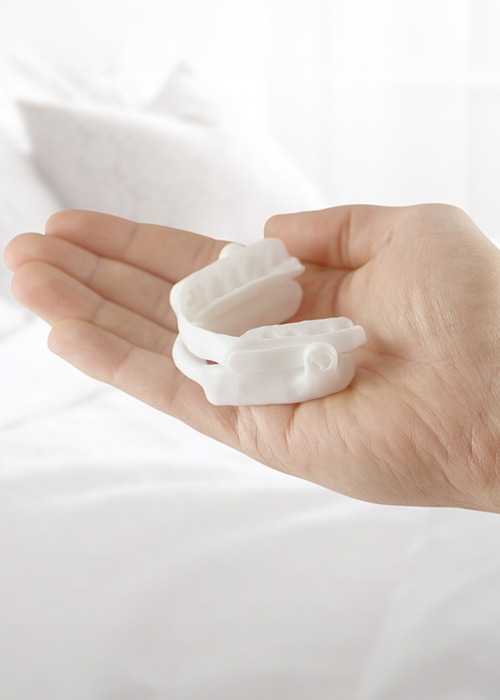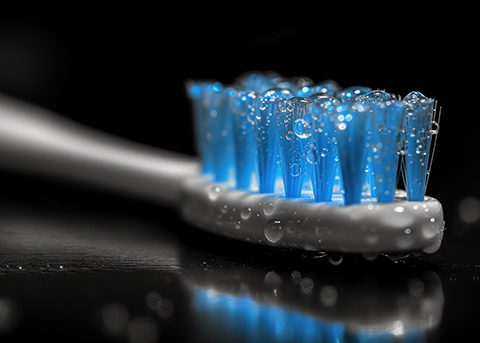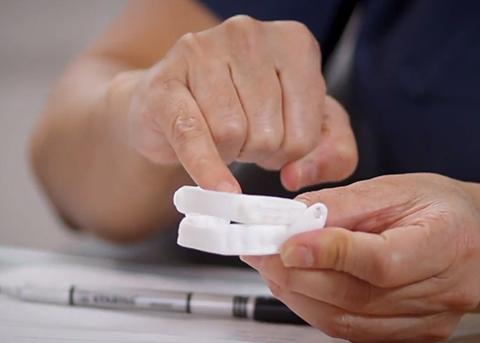How to Take Care of Your Sleep Apnea Oral Appliance Cumming
Better Sleep Means Optimal Maintenance

Wearing an oral device requires that you commit to taking proper care of it each day. Although it is worn at night, bacteria and other harmful particles can form, resulting in a foul odor and discoloration if you’re not careful. Dr. Bragg wants you to avoid damaging your appliance as well as your smile, which is why you can count on us to provide ways to keep it clean, minimize jaw pain, and handle unexpected damage that might occur.
How to Clean Your Oral Appliance

Keeping your oral appliance clean and free of bad oral bacteria means that you will need to:
- Use a separate soft-bristled toothbrush to clean your appliance each morning with foaming antibacterial soap.You’ll want to make sure that you brush thoroughly, as bacteria can remain hidden in the deepest of crevices.
- Brush and floss your teeth before inserting your appliance before bed. Any particles or bacteria that exist on your teeth will transfer to your oral device, creating a tight environment for harmful debris to attack your healthy teeth.
- Rinse your appliance and make sure it is dry before inserting it in your mouth.
- Panthera appliances can be soaked once a week in a denture cleaner to break down any bacteria, and it only needs to soak for a few minutes.
- Allow your appliance to air dry. Placing it in an air-tight container will only encourage bacteria to grow.
What If I Break My Oral Appliance?

If you find that your oral appliance is broken, do not wait to contact Dr. Bragg. She will work to have a new one created as quickly as possible so that you do not begin to suffer from the symptoms of sleep apnea. Keep the broken appliance and return it to us so your warranty will be effective!
A surefire way to keep your oral appliance safe is to store it somewhere secure when it’s not in use. Don’t let dogs, other pets, or young children around it.
How to Prevent Jaw Soreness
You’ll want to make sure that you practice simple exercises to minimize and prevent jaw soreness. Making sure you move your jaw enough to feel muscles stretch is important; however, you don’t want to overdo it. Moist heat and self-massage can be helpful as well. Additionally, isometric exercises will help to minimize overworking your muscles.

